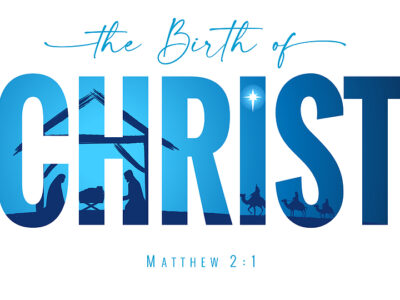When I was a boy, my family had the tradition of opening our gifts on Christmas Eve. But another tradition was that there would be one more gift waiting for us the next morning, Christmas day, from “Santa.”
I have a vivid memory, as a little boy, of being disappointed one Christmas Eve that the thing I wanted most was not among my unwrapped presents. However, I knew, I was just certain, that it would be waiting for me the next morning.
So on Christmas day, I woke well before anyone else and crept into the living room to see if my hope was true. There, leaning against the fireplace hearth was the package with my name on it. It was the right size and festively wrapped. I ran my hands around the edges and across the face of the package, hoping to catch a glimpse through the paper of its contents. There was no doubt. This was what I had been anticipating. But I couldn’t open it yet because I had to wait for everyone to wake up. So I waited . . . for hours. I sat for a while but eventually played with my other new toys while making a few loud noises, hoping to raise those other sleepyheads. But I never left the room, and my eyes rarely strayed from that wrapped package.
The anticipation was palpable. So much so that even as I write this post, I can feel again the ache in my chest. The longing, the desire to rip open that paper with unfettered joy. I knew what the package contained, but I had to wait to take possession of it and make it mine.
“And you will find the babe wrapped in swaddling clothes, lying in a manger” (Luke 2:12, KJV). A gift. Wrapped tightly. Waiting to be revealed. We can look and know exactly what the gift will be. Our Savior. Our hope. Our joy.
May you recapture the joy of anticipation this Christmas. For God’s gift to us is far greater than anything we can ever hope or imagine. So much more. And it is a gift the world is literally dying to receive.










